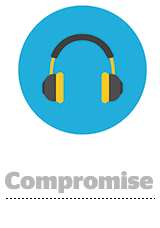 Here’s today’s AdExchanger.com news round-up… Want it by email? Sign up here.
Here’s today’s AdExchanger.com news round-up… Want it by email? Sign up here.
Pandora’s Music Box
Pandora now allows nonsubscribers to listen to music on demand after watching a 15-second video ad, a major change to its service and revenue model. Pandora’s 73 million unpaid US users cited song selection as their top request last year, and in beta tests, two-thirds of users were satisfied with watching an ad in order to choose the music they wanted, SVP of ad product strategy Lizzie Widhelm tells George Slefo of Ad Age. Its key rival Spotify’s unpaid version allows a listener to choose artists or kinds of music but not to select specific songs. And YouTube, meanwhile, racks up immense video ad views from people listening to music. More.
Payback
Google is being sued by digital ad platform AdTrader for failing to provide refunds to advertisers who bought fraud through AdX. According to Business Insider, Google kicked AdTrader off AdX in May for placing ads with “misguided navigation” issues like linking to nonexistent content, and promised to refund the $476,622 that went to fraud to its advertisers. But AdTrader, which acts as both a buyer and seller of inventory for clients, claims it was able to see that the money was never refunded. Google is denying the claims, which are based on a surreptitiously recorded phone conversation between a Google exec and AdTrader staff, citing “a long-standing policy of refunding advertisers for invalid traffic.” More.
Heard That
The IAB published revised podcast measurement guidelines after a public comment period [AdExchanger coverage]. The new version builds on the IAB’s original 2016 guidelines by providing instructions to analyze log files for audience reach and downloads. Based on public comment, Thursday’s version clarifies a 24-hour window for generating metrics, eliminates the partial download metric and reorganizes the five-step measurement process into a more logical sequence. It also encourages more transparency around the publisher’s methodology for defining a listener and adds a few recommendations for podcast players, like avoiding autoplay and preloads. Read the guidelines and the blog post.
The Loot Chute
Every year, new toys and games vie to be the yuletide season’s hot holiday gift. But this may be the breakout year for video game “loot boxes,” in-game rewards that can also be purchased. The tactic is common fare among smartphone app games, where users buy upgrades, but is making its way to console games that cost $50 to $60, reports The Wall Street Journal. Players have pushed back because of the advantages afforded to deep-pocketed opponents, and a Hawaii state representative went so far as to denounce the availability of loot boxes to minors, without a barrier to running up high charges. But Wall Street loves the strategy, propelling already-strong growth across the video game category. More.
But Wait, There’s More:
You’re Hired!
This post was syndicated from Ad Exchanger.

More Stories
GroupM agencies earn GenderTick accreditation in New Zealand
Doordash Jumps on the Dance Ad Trend, but Makes it ‘Cinematically Weird’
Big and little buddies pay it forward